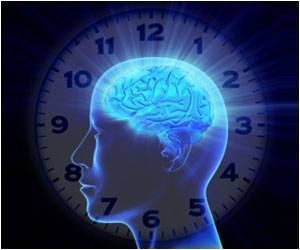Scientists have started to wonder if the universe is conscious. Panpsychism is a theory that suggests that everything is conscious. Biological and physics experiments are being performed to verify panpsychism.
Highlights :
- The universe could be conscious according to panpsychism
- Gregory Matloff and few other scientists are looking at panpsychism from a physical approach by observing stars and studying cosmos
- Christoff Koch is trying to verify panpsychism using a biological approach
- The theory of panpsychism is still in an experimental phase
Recently, scientists believe that the universe could be capable of consciousness. This theory is called ‘panpsychism’.
TOP INSIGHT
Panpsychism explores the possibility that the universe is conscious just like highly evolved organisms. Scientists are verifying the possibility of panpsychism. If true, it could change the world of science.
Read More..
Panpsychism
Panpsychism is derived from two Greek words pan, meaning all and psyche meaning soul or mind.Panpsychism is a concept where consciousness is a fundamental feature of the universe. All things are believed to have a mind or mind-like quality.
Panpsychism is an ancient belief that has existed among many religions. It exists from the Old Testament’s omniscience and omnipresence God to the Brahman of Hinduism.
A recent paper published by Gregory Matloff, a physicist at the New York City College of Technology, argues that humans maybe like the rest of the universe and a ‘proto-consciousness field’ could extend through all of space.
Gregory Matloff suggests that the entire cosmos could be self-aware.
Mind Out of Matter
Matloff researched stars to verify panpsychism. However, a neuroscientist Christof Koch at the Allen Institute for Brain Science, looked at humans to verify panpsychism.Koch believed that the widespread, ubiquitous consciousness is strongly related to the current understanding of the neurological origins of the mind.
Koch says that biological organisms are conscious. They can change their behavior when required.
Koch is trying to see if he can measure the level of consciousness a being displays.
Koch and his colleagues are using experimental tests to verify panpsychism.
One approach is to study brain-impaired patients. Koch wants to see if the information responses from these patients align with biological measures of their consciousness.
Another approach is to wire the brains of two mice together, to observe how the integrated consciousness of the animals change as the amount of information flowing between them is increased.
According to the integrated information theory, the brains of the two mice should merge into a single information system.
“The only dominant theory we have of consciousness says that it is associated with complexity - with a system’s ability to act upon its own state and determine its own fate,” says Koch.
“The theory states that it could go down to very simple systems. In principle, some purely physical systems that are not biological or organic may also be conscious.”
Role of Physicists in Verifying Panpsychism
Sir Roger Penrose around 30 years ago introduced an essential element of panpsychism. His theory stated that consciousness is deeply rooted in the statistical rules of quantum physics like consciousness applies in the microscopic spaces between neurons in the brain.A German physicist Bernard Haischtook Penrose’s idea a step further, in 2016.
Haisch suggested that the so-called ‘quantum vacuum’ produce and transmit consciousness. Potentially any physical structure has consciousness, not just a brain.
Penrose’s theory of consciousness has encountered resistance. Many of Penrose’s colleagues have been more accepting of the cosmic-consciousness implications of quantum mechanics.
The late physicist John Wheeler said that the universe as a whole festers in an uncertain state. It snaps into a clear, actual being when observed by a conscious being, that is us.
If Wheeler is correct, the universe is conscious. However, it is opposite to how Matloff pictures it. His interpretation is called the ‘participatory anthropic principle’.
In summary, panpsychism is just in an experimental phase. Researchers need to continue the quest to find out if our human brain is just a tiny component of a much greater cosmic brain.
Commentary by Dr.Sunil Shroff, Editor, Medindia
Panpsychism may answer many unresolved questions that science has not been able to answer so far. This includes the possibility of the existence of a super-natural universal power such as God, the origin of the universe and our purpose in this universe. Many of these questions lead to more philosophical thinking.Panpsychism is perhaps the bridge between philosophy and science. The current science is hugely dependent on physical matters and their measurements and proof of certain order in these measurements. However, it has never been able to develop into metaphysical science and explain the fundamental nature of reality or the relationship between mind and matter and between potentiality and actuality.
If the universal consciousness theory as proposed by Panpsychismis accepted, new science will emerge. A science that will explain religion, God, the purpose of birth and death and life itself in this universe, besides the very reason for the existence of this universe itself.
References :
- Some Scientists Now Believe That The Universe Itself Is Conscious - (https://awarenessact.com/some-science-now-believe-that-the-universe-itself-is-conscious-science-universe/)
- Is the Universe Conscious? - (https://www.nbcnews.com/mach/science/universe-conscious-ncna772956)
Source-Medindia
 MEDINDIA
MEDINDIA





 Email
Email




